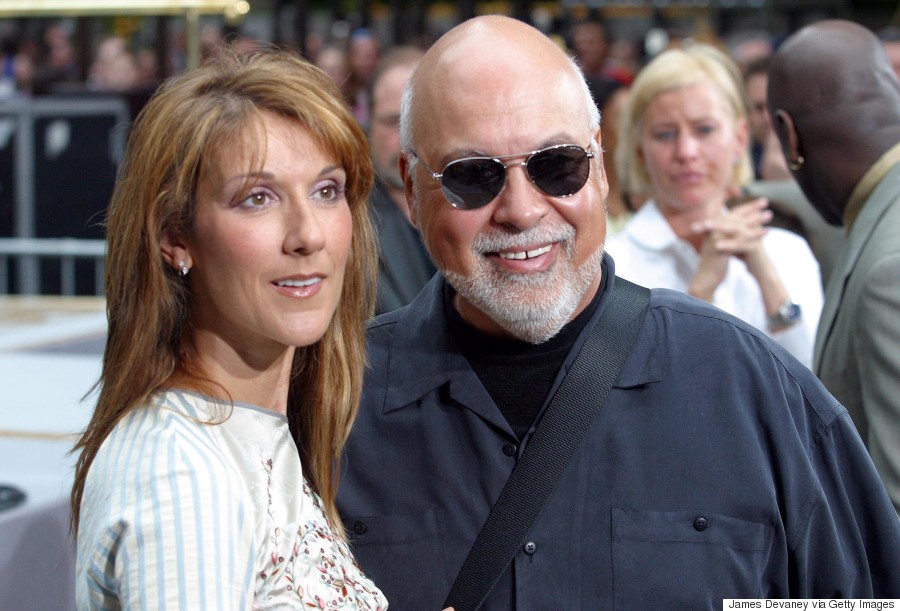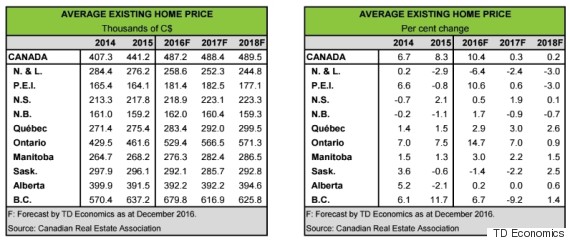Donald Trump's White House transition team
signaled late last week that Canada's auto industry could be targeted by a new U.S. border tax.
But Trump's Republican allies in Congress (if they are, indeed, his allies) are one step ahead of the president-elect. As part of their plan to reform corporate taxes, the newly Republican-held Congress is looking at introducing a “border adjustment tax” that would, in effect, raise the price of all goods imported into the U.S.
According to an analysis from National Bank Financial, this tax, if it were to be set at 10 per cent as is currently proposed, would cause Canada’s non-oil exports to fall by nearly 11 per cent. It would cause a smaller 0.3-per-cent decline in oil flowing from Canada to the U.S.
![donald trump]() President-elect Donald Trump speaks during a press conference at Trump Tower in New York, NY on Wednesday, Jan. 11, 2017. (Photo: Jabin Botsford/The Washington Post via Getty Images)
President-elect Donald Trump speaks during a press conference at Trump Tower in New York, NY on Wednesday, Jan. 11, 2017. (Photo: Jabin Botsford/The Washington Post via Getty Images)
“Such a measure would be detrimental to exporters to the U.S., including Canada where dependence on exports has grown in light of slowing domestic demand,” NBF economist Kirshen Rangasamy
wrote in a client note Thursday.
The tax “could damage Canada more than any other nation on earth,” wrote Conservative MP Pierre Poilievre in
an op-ed in the Financial Post.
That’s because Canada and Mexico are the countries that are most reliant on trade with the U.S., with some 73 per cent of both countries’ exports headed there.
For both countries, the tax could mean a recession-sized decline in the economy. Since exports account for 31 per cent of Canada’s economic activity, and three-quarters of exports go to to the U.S., an 11-per-cent decline would directly shrink the economy by nearly 3 per cent, with further indirect effects.
![paul ryan]()
U.S. House Speaker Paul Ryan (R-WI) speaks during his weekly news conference on Capitol Hill in Washington, U.S., September 22, 2016. Ryan has been pushing a tax reform plan that includes a "border adjustment tax." (Photo: Reuters/Yuri Gripas)
Congressional Republicans, headed by House Speaker Paul Ryan, are
proposing the tax as a way to offset the cost of lowering the U.S.’s corporate income tax rate to 20 per cent from the current 35 per cent. They included the idea in their
“Better Way” tax reform plan, and according to
media reports from Washington, the committee writing tax reform legislation is debating whether or not to make a border adjustment tax part of it.
Currently, businesses pay tax on the profit made on a good or service. So if a U.S. company imports a Canada Goose jacket at a cost of $400 and sells it for $500, it pays tax on the $100 profit. Under the new plan, the business would be taxed on the
entire price of the imported good, at a proposed rate of 10 per cent.
At the same time, U.S. exporters would
not be taxed on the profits they make from exports.
"The U.S. economy would get a boost … at the expense of its trading partners."
— Sal Guatieri, BMO
House Republicans say this plan would do two things: It would make U.S. companies more competitive both at home and abroad, and it would help stop companies shifting their headquarters to low-tax jurisdictions to avoid paying higher taxes at home.
But many in the U.S.’s business community are outraged at the proposal, saying it is consumers who would end up paying the tax through increased prices on imported goods.
“This levy will cost American consumers at least a trillion dollars over the next ten years,”
wrote billionaire publisher Steve Forbes, who, through his self-named magazine, often acts as the voice of America’s business elite.
He described the tax as a “bizarre GOP scheme” that would raise prices for American shoppers on everything from shoes and clothes to iPads and cars.
“Gasoline? Millions of Americans will pay an additional 30 cents or more per gallon at the pump.”
![steve forbes]() Forbes Media Chairman and Editor-in-Chief Steve Forbes attends a press conference in Kuala Lumpur on September 12, 2011. (Photo: Saeed Khan/AFP/Getty Images)
Markets could defeat the tax
Forbes Media Chairman and Editor-in-Chief Steve Forbes attends a press conference in Kuala Lumpur on September 12, 2011. (Photo: Saeed Khan/AFP/Getty Images)
Markets could defeat the tax
However, as some economists point out, introducing the tax would cause currency traders to buy the U.S. dollar, anticipating stronger exports, while dumping the Canadian dollar, the Mexican peso (which has already hit all-time lows) and other currencies that rely on exports to the U.S.
That could, in effect, wipe out the impact of the tax on global trade, by making U.S. exports more expensive and foreign imports, including from Canada, less expensive in U.S. dollar terms.
In theory, the tax would have no impact "because the currency would normally adjust to equalize prices between the U.S. and its trading partners," Bank of Montreal chief economist Sal Guatieri wrote in a client note Monday morning.
But because the U.S. dollar is already trading high and the country is running a large deficit, the currency may not adjust all the way to cover the border tax. And if it doesn't, "U.S. imports would go down, exports would go up, the trade deficit would shrink, and the U.S. economy would get a boost … at the expense of its trading partners," Guatieri wrote.
Some trade experts have suggested the new tax could run afoul of the international trade rules set up under the World Trade Organization. But Republican supporters argue that value-added taxes in other countries, like Canada's GST, are essentially the same thing, because, like the border tax, they are charged at the point of sale.
GOP infighting
A fight has broken out among Republicans over the tax. Though President-elect Donald Trump has been the loudest supporter of protectionist measures, his economic adviser, Larry Kudlow (a CNBC talking head), is pushing back against the idea.
Americans don’t want a new consumption tax, and the proposal is “the kind of thing that could doom tax reform,” Kudlow said this week.
-- This feed and its contents are the property of The Huffington Post, and use is subject to our terms. It may be used for personal consumption, but may not be distributed on a website.
 Alyssa Langille. (Photo: Peel Regional Police Service)
Alyssa Langille. (Photo: Peel Regional Police Service) The wealth of billionaire businessmen David Thomson and Galen Weston Sr. equals that of about 11 million Canadians, according to an Oxfam report.
The wealth of billionaire businessmen David Thomson and Galen Weston Sr. equals that of about 11 million Canadians, according to an Oxfam report.


 Mexican police agents patrol near a nightclub in Playa del Carmen, where five people were killed during the BPM music festival. (Photo: AFP/Getty Images)
Mexican police agents patrol near a nightclub in Playa del Carmen, where five people were killed during the BPM music festival. (Photo: AFP/Getty Images)

 Celine Dion and husband Rene Angelil during "Celine Dion Performs on The Today Show Summer Concert Series," May 17, 2002.
Celine Dion and husband Rene Angelil during "Celine Dion Performs on The Today Show Summer Concert Series," May 17, 2002. Meghan Markle has been dating Prince Harry since last summer.
Meghan Markle has been dating Prince Harry since last summer.











 Abbotsford police released security images of a truck they believe was used to distribute racist flyers.
Abbotsford police released security images of a truck they believe was used to distribute racist flyers.